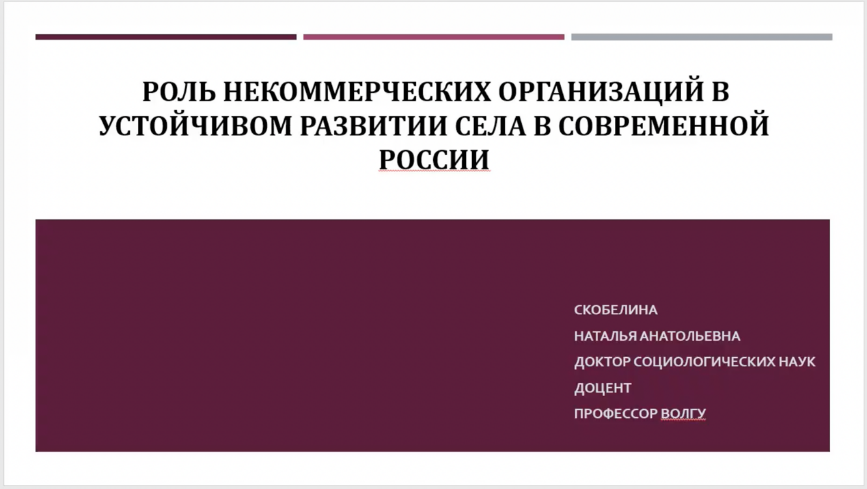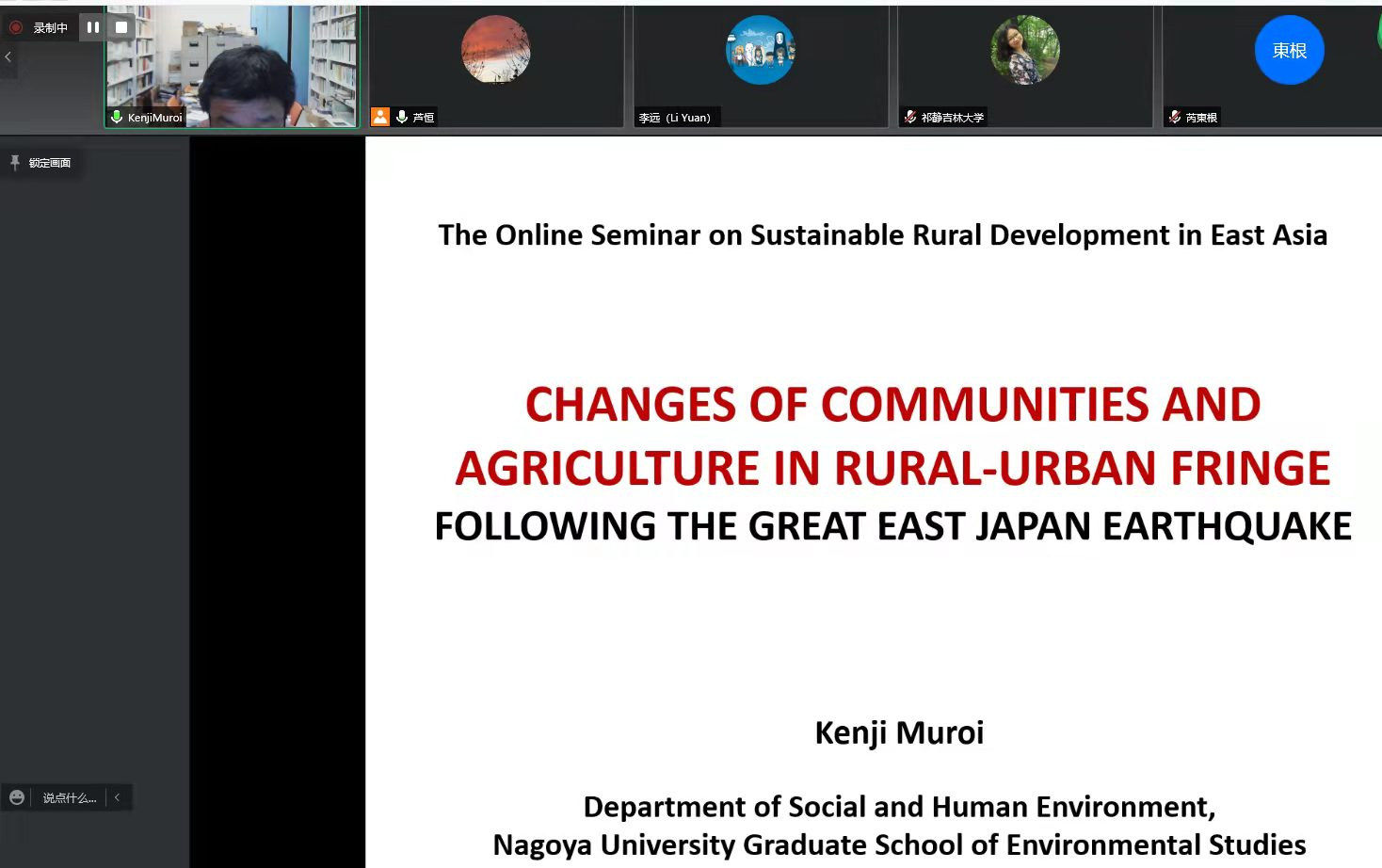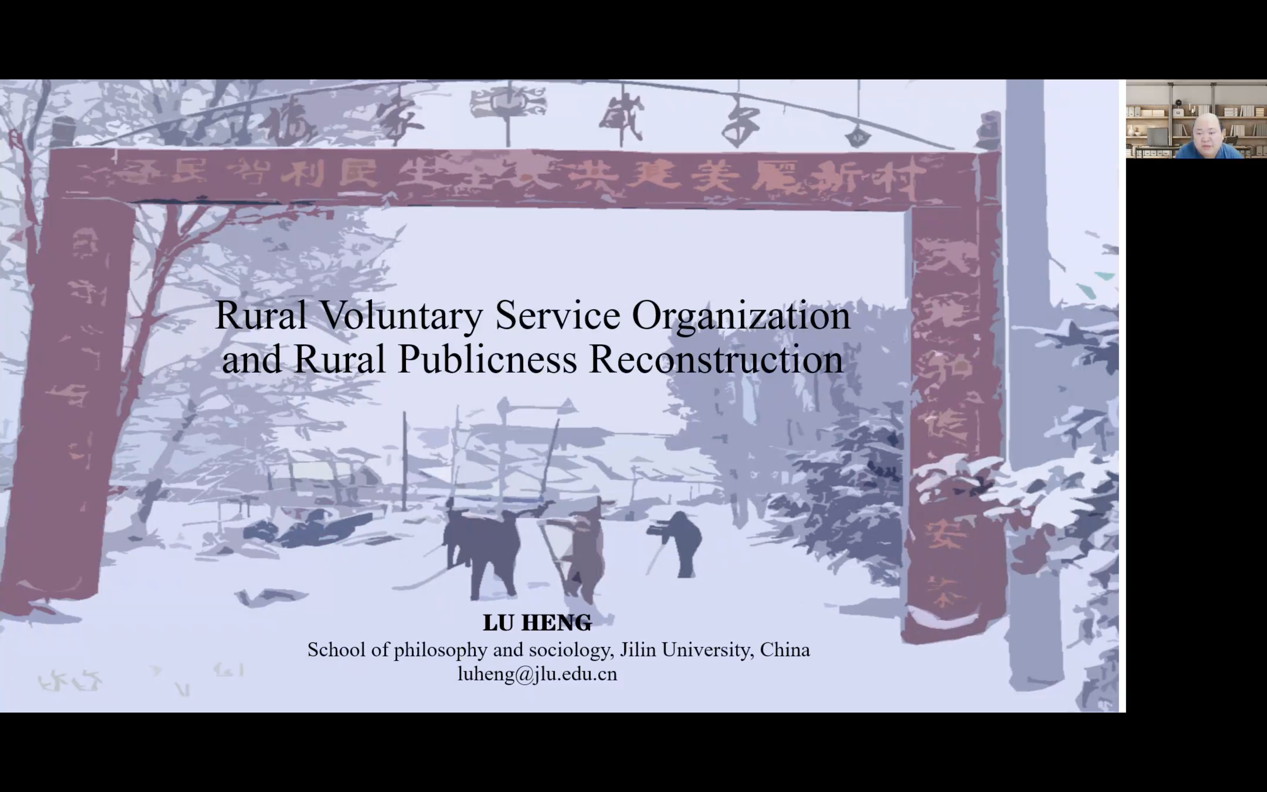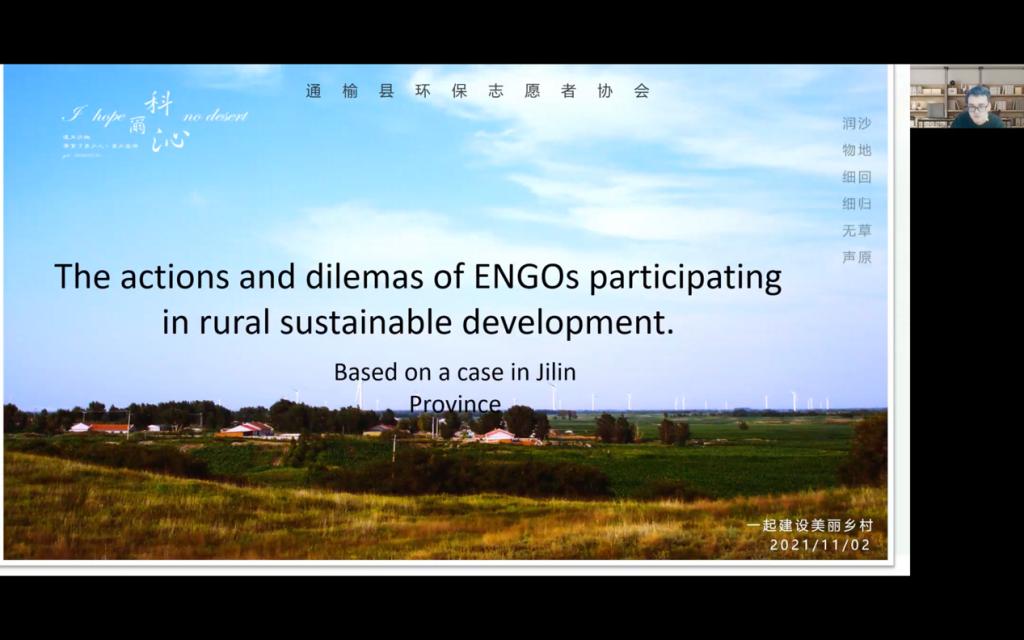On November 14, 2021, at 14:00, the online seminar "Sustainable Rural Development in East Asia" was successfully held. Scholars from Russia, South Korea, Japan, and China discussed the sustainable development model of villages and the innovation of rural social governance.
Professor Tian Yipeng, Dean of the School of Philosophy and Social Sciences of Jilin University, said in his speech that East Asian societies have a long-standing tradition of rural society, and it is a global problem how to achieve rapid development of East Asian villages in the context of industrialization and urbanization.
Professor Skobelina Natalya Anatolyevna from Volgograd State University of Russia, Sociology, and Socio-technology, presented the role of non-profit organizations in the sustainable development of contemporary Russian villages. She pointed out that the Russian government has been supporting the non-profit organization sector since 2000, mainly in terms of establishing the Federation of Agricultural Associations, granting agricultural subsidies to develop agriculture, receiving subsidized preferential loans for renting premises, and motivating young people to return to their hometowns after their studies to develop the countryside. With the support of the state, non-profit organizations play an important role in rural development with significant results.

Prof. Hong-Ju Kim of the Department of Welfare and Health Care at Gwangun University in Korea presented the present and future of the Korean countryside. Currently, Korea's rural areas face serious problems such as the aging of the rural areas with few children, the decrease of arable land area, the reduction of the employed labor force, and the reduction of agricultural corporations. During the epidemic, the food issue became a national security issue. The Korean people are willing to help rural development by paying taxes, so there is much hope for rural development in Korea and much room for improvement.

Professor Kenji Muroi of the Department of Sociology, Nagoya University, Japan, presented a study of urban-rural relations in the post-disaster restoration process in the combined urban-rural areas of contemporary Japan. Due to the original urban and rural planning, Japan has re-sited the damaged railroad lines and affected villages in the Sendai metropolitan area. It should not be overlooked that this will also have a different impact on factors such as population size. Regarding agricultural land use for post-disaster reconstruction, Japan focused mainly on the effects of innovation in the agricultural production process, such as farmland contract farming on a large scale, extensive financial support, and mechanized applications, all of which effectively enhanced agricultural production.

Professor Lu Heng from our institute presented the research results on rural volunteer organizations and rural communality reconstruction. He used the framework of publicness to explain farmers' volunteer services. Public welfare, farmers' public participation, and general ethics constitute rural publicness. Farmers' mutual aid and social assistance and conducting epidemic prevention and control checks protect the pastoral public interest. Overall, rural volunteerism has an important role in sustainable rural development.

Prof. Rui Dong-Geun from the Department of Chinese Studies, Bu Kyung National University, Korea, introduced the specifics of the Korean agricultural heritage system and illustrated the development and impact of the Korean agricultural heritage with the examples of the Korean bookstore and beach culture. He emphasized that agricultural activities are living production activities, including product knowledge, habits, and rural relations, so it is important to activate cultural heritage and eventually establish a sustainable agricultural heritage cycle system.

Mr. Li Yuan from the Department of Sociology of Jilin University shared a study on the actions and dilemmas of environmental organizations involved in sustainable rural development. Dr. Li Yuan first introduced the Tongyu Environmental Protection Volunteer Association, which has been working on ecological restoration of the huqin sand grasslands since 2000, while helping villagers set up self-help groups to combine ecological restoration and sustainable development in the countryside. Currently, public welfare organizations face the dilemma of dependence and autonomy. On the one hand, villagers depend on the organization and are unwilling to take risks alone; on the other hand, villagers gradually have their own goals in the autonomous groups and progressively break away from the control of the public welfare organizations. This poses a challenge to developing public interest organizations and the sustainable development of environmental protection.
In the discussion session, scholars discussed the impact of climate change on the function and participation of volunteers, the development of "resilient cities" in the wake of disaster risks, the specific measures of non-profit organizations to attract people back to rural areas, and the relationship between urban and rural areas in Japan.
It is of great theoretical and practical significance for scholars from neighboring countries to discuss the sustainable development of rural societies in East Asia in the context of globalization and rural revitalization, which is conducive to the research and active exploration of sustainable and healthy rural development, as well as a great promotion for the construction of first-class disciplines of philosophy and sociology at Jilin University.
